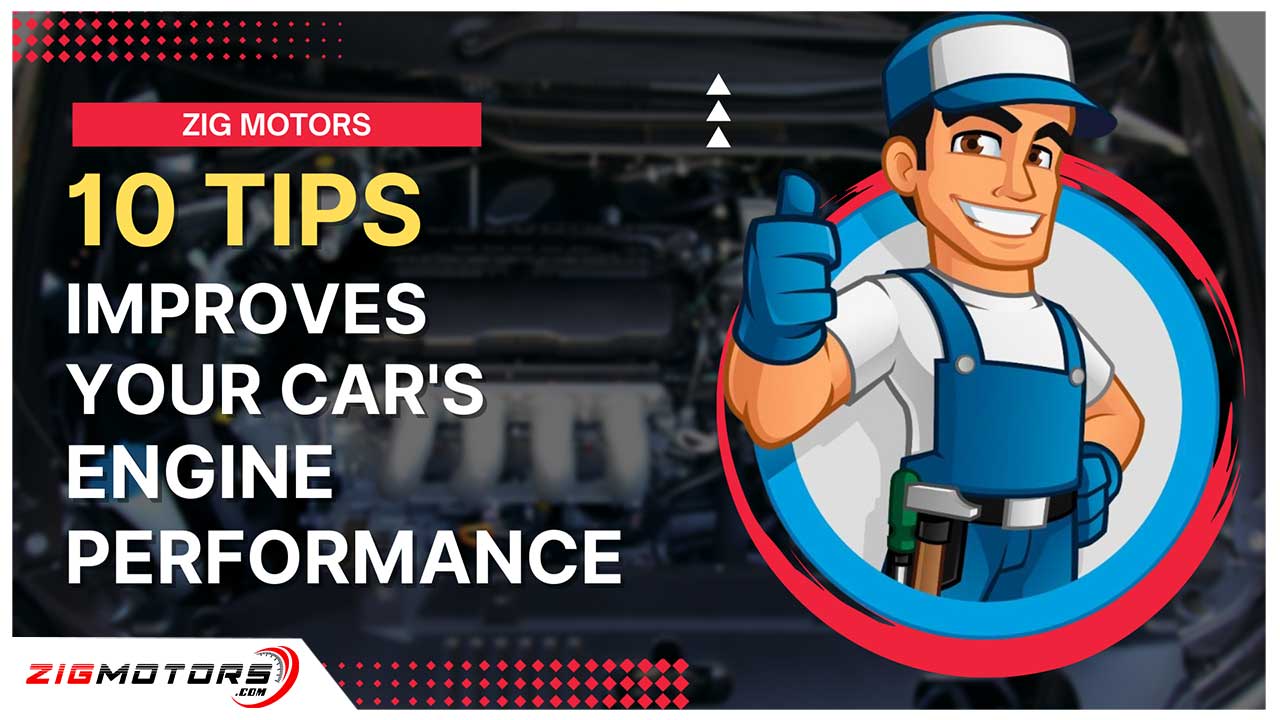
Maintaining your car’s engine performance is crucial for the longevity of your vehicle. A car that’s well-maintained is more efficient and reliable, saving you money in the long run. Here are ten tips that you can use to keep your engine running smoothly.
Regular maintenance is crucial to keep your engine running at its best. Some of the essential maintenance tips include changing the oil, replacing air filters, and changing spark plugs. These routine checks help to prevent engine damage, which can be costly to repair.
How to Keep Your Car's Engine Healthy with These 10 Tips
1. Oil changes
Oil is the lifeblood of your engine, and it needs to be changed regularly. Old oil can cause the engine to work harder, leading to engine damage. Regular oil changes ensure that your engine is lubricated correctly, reducing friction and preventing engine wear.
2. Air filters
Air filters protect your engine from dirt, debris, and other contaminants. Dirty air filters restrict airflow, making your engine work harder than it needs to. Replacing the air filter every 10,000 to 15,000 kms ensures that your engine has a steady supply of clean air, improving fuel efficiency and engine performance.
3. Spark plugs
Spark plugs provide the spark that ignites the fuel in your engine, creating the power that drives your car. Old or dirty spark plugs can cause your engine to misfire, leading to a loss of power and reduced fuel efficiency. Replacing your spark plugs every 30,000 miles or as recommended by the manufacturer ensures that your engine runs smoothly
4. Proper fuel
Using the right type of fuel is essential to keep your engine running smoothly. Using low-quality fuel can lead to engine damage, reduced performance, and fuel efficiency. Always use the recommended fuel type and octane level for your vehicle, which can be found in the owner’s manual.
5. Warm-up
Giving your engine time to warm up before driving is crucial, especially in cold weather. Starting your engine and immediately driving can cause engine wear and reduced performance. Let your engine warm up for a few minutes before driving to ensure that the oil is circulating correctly, reducing engine wear and tear.
6. Smooth driving
Smooth driving can help to extend the life of your engine. Avoid sudden acceleration, harsh braking, and rapid gear changes, which can put extra strain on your engine. Smooth driving reduces engine wear and tear, improves fuel efficiency, and reduces the risk of accidents.
7. Avoiding overloading
Overloading your car puts extra strain on your engine, reducing performance and fuel efficiency. Check your vehicle’s maximum weight limit and avoid carrying more than recommended. Overloading can cause damage to your suspension, brakes, and engine, reducing the lifespan of your vehicle
8. Cooling system
The cooling system is essential to keep your engine running smoothly. The engine produces a lot of heat, and the cooling system helps to dissipate this heat. Ensure that the cooling system is working correctly by checking the coolant level and topping it up if necessary. A malfunctioning cooling system can lead to engine overheating and damage.
9. Avoiding harsh weather
Harsh weather conditions such as extreme heat or cold can put extra strain on your engine, leading to reduced performance and increased wear and tear. Park your vehicle in a garage or covered area during extreme weather conditions to protect it from the elements. In cold weather, let your engine warm up for a few minutes before driving to reduce engine wear and tear.
10. Professional servicing
Regular professional servicing is crucial to keep your engine running smoothly. A trained mechanic can identify potential issues and fix them before they cause significant damage to your engine. Regular servicing also ensures that your engine is tuned correctly, improving fuel efficiency and performance.
FAQs
It’s recommended to change your car’s oil every 5,000 to 7,500 kms, depending on the manufacturer’s recommendation.
Yes, using low-quality fuel can cause engine damage and reduced performance.
It’s recommended to replace your car’s air filter every 12,000 to 15,000 kms.
If your check engine light comes on, it’s best to have your vehicle checked by a professional mechanic to identify any potential issues.
Proper maintenance, smooth driving, and using the recommended fuel type and octane level can improve your car’s fuel efficiency.

